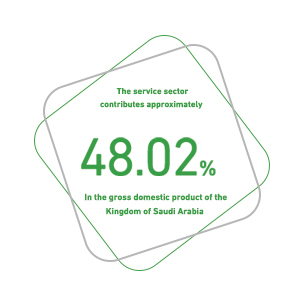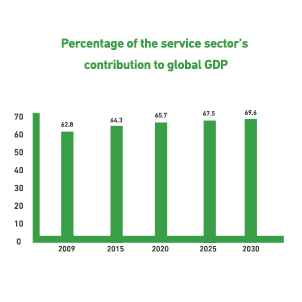The vocational training center project is a specialized institution aimed at preparing and qualifying individuals for the labor market by providing advanced educational and training programs that meet the needs of various sectors. The center seeks to empower trainees to acquire the skills and knowledge necessary to develop their capabilities, whether they wish to start their careers, improve their job performance, or even develop their own businesses. The programs offered by the vocational training center project are diverse, including behavioral courses focused on developing communication and teamwork skills, management courses that cover leadership and time management, in addition to technical programs that concern specialized professions such as crafts and industries. The center also places special emphasis on promoting an entrepreneurial culture through programs that assist trainees in successfully establishing and managing their startups. The center is distinguished by its ability to keep up with changes in the labor market, continuously adding new educational programs that cover emerging jobs and professions. It is committed to providing an interactive learning environment using the latest training methods, making it an ideal destination for those looking to develop themselves and achieve their professional aspirations.

The Vocational Training Center project is a comprehensive institution aimed at preparing individuals for the labor market by offering training programs that combine theoretical education with practical application. The center specializes in a variety of fields, including behavioral skills, management development, technical specialties, and entrepreneurship programs, which enable individuals to establish and manage their own businesses.<br>The training process is overseen by a team of highly qualified trainers with extensive experience and expertise, ensuring the delivery of high-quality training content that meets the evolving needs of the labor market. The center provides a fully equipped educational environment with the latest tools and technologies, contributing to an enhanced learning experience and the practical application of acquired skills.<br>The center is committed to offering opportunities to everyone by providing relatively affordable training fees, making it an ideal choice for those looking to develop their professional skills.



Providing top-quality educational services at affordable fees
A team of highly qualified and experienced trainers
A well-equipped educational environment with modern tools and top-tier staff
A balanced approach between theoretical knowledge and practical application
Preparing individuals to meet the demands of the job market
Executive summary
Study project services/products
Market Size Analysis
Risk Assessment
Technical study
Financial study
Organizational and administrative study

The Education Sector in the GCC Countries
Believing in the significance of the education sector and its role in national workforce localization, Mashroo3k Economic Consultancy and Market Research is pleased to present the key educational indicators in the Gulf Cooperation Council (GCC) countries—inviting investment in this vital sector:
The total number of early childhood education students (including nurseries and kindergartens) in the GCC countries reached approximately 851.5 thousand students, according to the latest available statistics.
The number of students in school education stages is estimated at 9.3 million, with 79.4% enrolled in public schools and 20.6% in private schools.
Adult education centers recorded around 181,247 learners.
The total number of higher education students is 2,206,446.
The number of early childhood education teachers is 50,647.
The number of school education teachers is approximately 727,904.
There are 5,806 operational institutions in early childhood education.
There are 32,310 operational institutions in school education.
Over recent years, GCC governments have worked to bridge the gap between education and labor market needs. They have adopted curricula aimed at increasing the share of vocational and technical education and promoted learning through digital platforms and modern technologies. Additionally, these six countries have significantly increased their spending on education to produce graduates who meet the private sector’s workforce demands.
According to the latest statistics:
Saudi Arabia allocates 18.9% of its national budget to education.
UAE spends 14.8%,
Oman allocates 12.2%,
Bahrain spends 9.8%,
Kuwait allocates 12.3%,
Qatar spends 10.5% on education.
By 2023, the private education market in GCC countries is expected to reach a value of USD 26.2 billion.
The Global Education Sector
The global education services market was valued at approximately USD 2,882.52 billion by the end of 2021. Experts projected this figure to reach USD 3,191.79 billion by the end of 2022, marking a compound annual growth rate (CAGR) of 10.7%.
Looking ahead to 2026, the market is expected to grow further to USD 4,623.90 billion, achieving a CAGR of 9.7% over the forecast period.

By the year 2030, the global value of the education industry is projected to reach USD 10 trillion.
By 2024, the value of online education worldwide is expected to hit USD 247.46 billion.
The AI-powered education market is set to grow at a compound annual growth rate (CAGR) of 36% from 2022 to 2030.
In terms of global student numbers:
In the year 2000, there were approximately 657 million students worldwide.
By 2019, this number had increased to 739 million.
For secondary education, the number of students grew from 452 million in 2000 to 601 million in 2019.